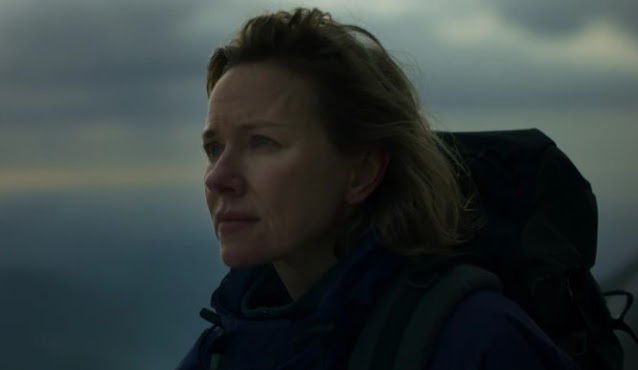Among female actors who aren't often associated with action films, Naomi Watts has a history of taking on parts that require a great deal of physical prowess. Amidst Peter Jackson's "King Kong," "Funny Games," and "The Impossible," her gymnastics were the most remarkable effect, and she was a vividly realistic victim of severe situations. A good idea may go bad, as with the recent, unfortunate "The Desperate Hour," which appeared to turn the hot-button matter of school shootings into a cheap "Watch this courageous woman run the range of emotions while jogging!" spectacle.
Fortunately, the physicality required of Watts in "Infinite Storm," which is based on a true story that occurred in the White Mountains of New Hampshire a decade ago, is not gratuitous. Polish director Malgorzat Szumowska's second English-language feature (following 2019's "The Other Lamb") is an impressive outdoor adventure suited to the more athletic side of its star's skill set. Even though the emotional involvement isn't quite as rewarding, we feel more exasperation than inspiration at watching our heroine struggle to rescue an uncooperative manbaby from the peril he's put himself (and her) in. In the United States, the international co-production will be released on March 25th by Bleecker Street.
Even though Pam Bales (Watts) complains about having to get out of bed so early one November morning, her gear and precise planning soon reveal that she is no casual day hiker. On a day of personal recall, she sets out to climb Mount Washington, despite dire weather warnings or snow already on the ground. In the midst of blizzard conditions, she is shocked to hear a human cry near the peak and disgusted to find traces that indicate someone made it this far in sneakers.
For a brief moment, "Infinite Storm" appears to be morphing into a much colder, gender-flipped "127 Hours," when Pam is distracted by an accident. Once she's free, she goes on the hunt for the young guy she's dubbed John (Billy Howle), whom she soon discovers half-frozen and semi-conscious on an exposed peak. For the time being, no one knows how or why he ended up there. However, he must be brought down the mountain before dusk, when the temperature drops much lower.
There's a silver lining to this situation: Pam, a nurse, has extensive experience in both emergency medicine and wilderness rescue. A six-foot kid who periodically turns into a deadweight is a lot like caring for "John." She wonders if he's on drugs because of his erratic conduct. Even when he isn't accidentally tumbling off cliffs or into water, he is usually running away or refusing to move in a sulky rage. As if being rescued was a punishment in and of itself, he suffers injuries that impede their progress.
After a few disjointed flashbacks, we finally understand why he's so depressed, much as Pam's long-term grieving has led her to this distant location today. "John" (the real-life rescuee never revealed his name) doesn't make it easy for us, let alone for his dogged savior, in "Infinite Storm," which has considerable poignancy in its late disclosures. The script by Joshua Rollins succeeds in keeping the focus on the roughly 24-hour span during which these events take place. Despite the excellent main performances, there is a distinct lack of character depth.
Although it falls short as a human drama, Szumowska's latest—a 180-degree shift from her previous, the brilliant Polish allegorical story "Never Gonna Snow Again"—is totally fulfilling as an appreciation of nature as a beautiful foe. "Storm" is visually stunning and evocative of the rough New England landscape, even though the Slovenian Alps aren't a perfect match for the White Mountains of New England. Michal Englert, the director's longtime cinematography collaborator, does it again with flying colors (and sometimes as co-writer). It's a far more intimate piece of storytelling, yet despite the smaller scope, his panoramic photography captures the environment and the elements in a way that's just as majestic as something like "The Revenant."
For example, Lorne Balfe's original score is kept to a minimum. However, Englert's name appears in the end credits only as a co-director, whereas Szumowska and Englert shared directing credit for the very different, ironical "Snow."

